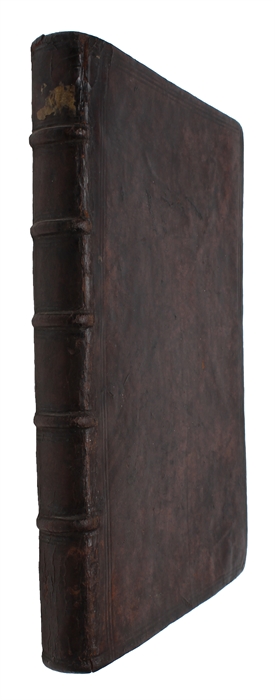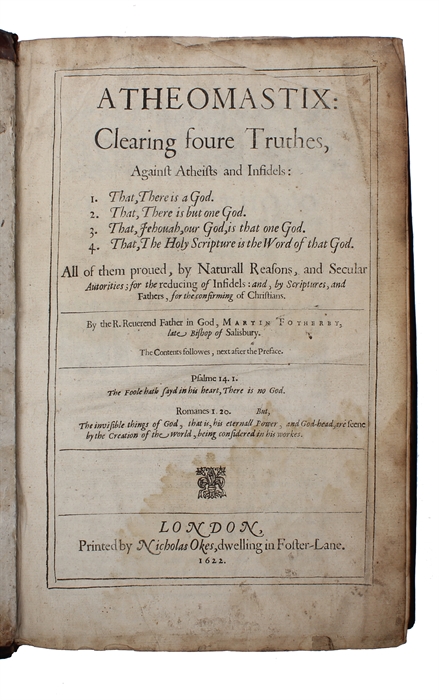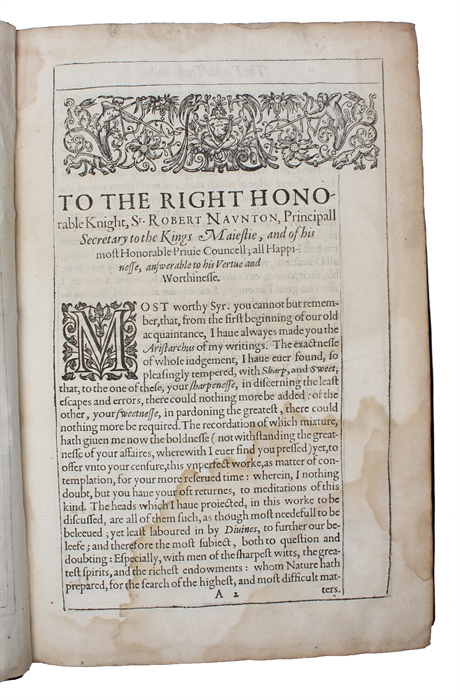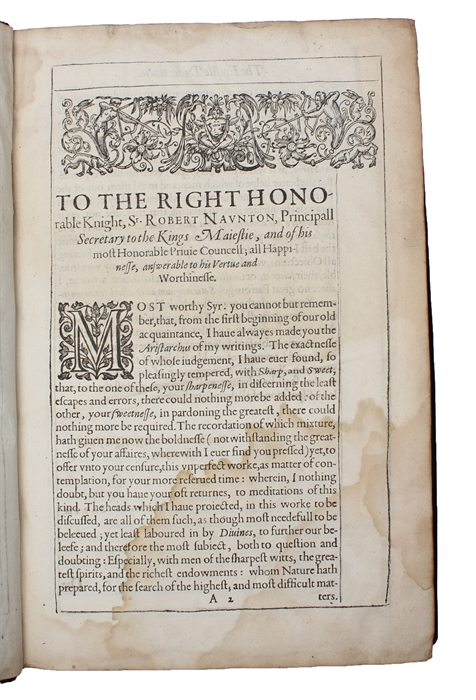REFUTATION OF ATHEISM
FOTHERBY, MARTIN.
Atheomastix: clearing foure Truthes against Atheists and Infidels.
London, Nicholas Okes, 1622.
Folio. In contemporary full calf with five raised bands to spine. Boards with triple blind rule to boarders. Traces from paper-label to upper compartment of spine. Title-page soiled and with waterstain throughout, primarily affecting first and last leaves. (XXXVI), 68, 99-362 pp.
First and only edition, posthumously published, of this important work in which Fotherby refuted atheism. Fotherby's approach involves using natural reasoning and secular authorities rather than relying solely on Scripture and Church Fathers, as was common, to convince skeptics of Christian truths. He understood the limitations of appealing only to divine revelation and therefore added arguments with references from classical literature and early modern travel accounts, aiming to persuade through credible sources rather than religious dogmatic authority. “Fotherby, Martin (1549?–1619), bishop of Salisbury, son of Maurice Fotherby, a resident at Grimsby, Lincolnshire, was born about 1549. He entered at Cambridge, and eventually became a fellow of Trinity. He became prebendary and archdeacon of Canterbury in 1596, and in 1615 was presented to the deanery. He had married some years before his first promotion; for on 9 Sept. 1609 Lady Cooke wrote to Lord Salisbury asking him to promote the marriage of her eldest daughter with the archdeacon's eldest son, to which Fotherby objected, and in the following year, after the marriage had taken place, begged for a knighthood at the creation of the Prince of Wales for her son-in-law, because her daughter's worth and birth had been much disgraced by the match. Three years afterwards, being chaplain to James I, he was appointed to the bishopric of Salisbury. He was consecrated by Abbot, assisted by the bishops of London, Coventry, and Lincoln, 19 April 1618, and protested at his consecration that he had given nothing for his promotion. He died 29 March 1619, aged 70, and was buried in Allhallows Church, Lombard Street. In the epitaph on his tomb he is described in very high-flown terms of praise. He left an imperfect work against atheism, which was published after his death in 1622 in folio, under the title ‘Atheomastix: clearing foure Truthes against Atheists and Infidels.’ Four sermons were published together in 1608 in quarto, having been written in 1604. Copies of both these works are in the British Museum.” (DNB) Not in Lowndes.
Order-nr.: 60959




